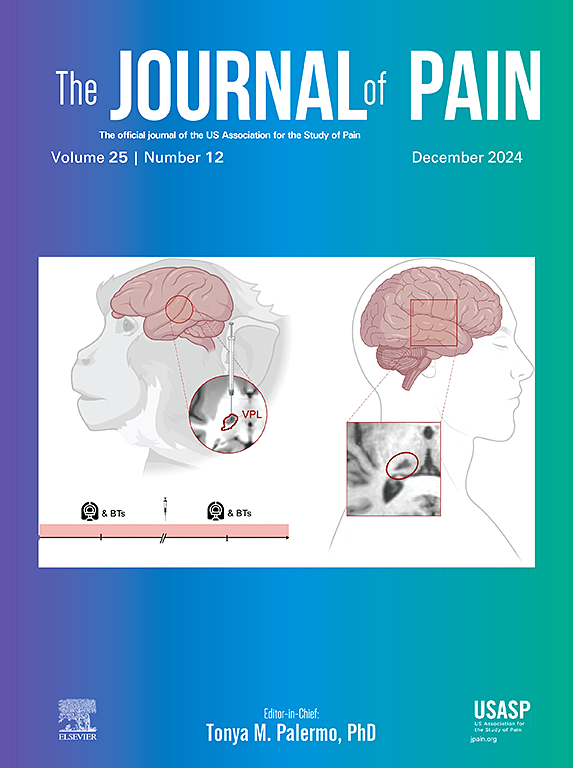Enhancing the trustworthiness of pain research: A call to action.
IF 4
2区 医学
Q1 CLINICAL NEUROLOGY
引用次数: 0
Abstract
The personal, social and economic burden of chronic pain is enormous. Tremendous research efforts are being directed toward understanding, preventing, and managing chronic pain. Yet patients with chronic pain, clinicians and the public are sometimes poorly served by an evidence architecture that contains multiple structural weaknesses. These include incomplete research governance, a lack of diversity and inclusivity, inadequate stakeholder engagement, poor methodological rigour and incomplete reporting, a lack of data accessibility and transparency, and a failure to communicate findings with appropriate balance. These issues span pre-clinical research, clinical trials and systematic reviews and impact the development of clinical guidance and practice. Research misconduct and inauthentic data present a further critical risk. Combined, they increase uncertainty in this highly challenging area of study and practice, drive the provision of low value care, increase costs and impede the discovery of more effective solutions.
In this focus article, we explore how we can increase trust in pain science, by examining critical challenges using contemporary examples, and describe a novel integrated conceptual framework for enhancing the trustworthiness of pain science. We end with a call for collective action to address this critical issue.
Perspective
Multiple challenges can adversely impact the trustworthiness of pain research and health research more broadly. We present ENTRUST-PE, a novel, integrated framework for more trustworthy pain research with recommendations for all stakeholders in the research ecosystem, and make a call to action to the pain research community.
提高疼痛研究的可信度:行动呼吁。
慢性疼痛给个人、社会和经济造成了巨大负担。为了了解、预防和控制慢性疼痛,人们正在进行大量的研究工作。然而,慢性疼痛患者、临床医生和公众有时并不能从包含多种结构性缺陷的证据架构中得到很好的服务。这些弱点包括:研究管理不完善、缺乏多样性和包容性、利益相关者参与不足、研究方法不够严谨和报告不完整、缺乏数据可获取性和透明度,以及未能以适当的平衡方式交流研究结果。这些问题涉及临床前研究、临床试验和系统性综述,影响着临床指南和实践的制定。研究不端行为和不真实的数据带来了更大的风险。这些问题加在一起,增加了这一极具挑战性的研究和实践领域的不确定性,导致提供低价值的医疗服务、增加成本并阻碍发现更有效的解决方案。在这篇重点文章中,我们通过使用当代实例研究关键挑战,探讨了如何提高疼痛科学的可信度,并描述了一个新颖的综合概念框架,以提高疼痛科学的可信度。最后,我们呼吁采取集体行动解决这一关键问题。观点:多重挑战会对疼痛研究和更广泛的健康研究的可信度产生不利影响。我们介绍了 ENTRUST-PE,这是一个新颖的综合框架,旨在提高疼痛研究的可信度,并为研究生态系统中的所有利益相关者提出了建议,同时呼吁疼痛研究界采取行动。
本文章由计算机程序翻译,如有差异,请以英文原文为准。
求助全文
约1分钟内获得全文
求助全文
来源期刊

Journal of Pain
医学-临床神经学
CiteScore
6.30
自引率
7.50%
发文量
441
审稿时长
42 days
期刊介绍:
The Journal of Pain publishes original articles related to all aspects of pain, including clinical and basic research, patient care, education, and health policy. Articles selected for publication in the Journal are most commonly reports of original clinical research or reports of original basic research. In addition, invited critical reviews, including meta analyses of drugs for pain management, invited commentaries on reviews, and exceptional case studies are published in the Journal. The mission of the Journal is to improve the care of patients in pain by providing a forum for clinical researchers, basic scientists, clinicians, and other health professionals to publish original research.
 求助内容:
求助内容: 应助结果提醒方式:
应助结果提醒方式:


